
Shepherd Ending Explained
No matter how hard you try to avoid the guilt, it will eventually come up with you. It will gradually creep up on you until your days become nightmares. That appears to be the takeaway from Russell Owen’s wonderfully presented allegorical psychological nightmare ‘Shepherd.’ The plot twists the classic “stranded on an island” narrative in favor of a novel take on memory and ethics.
Eric Black is attempting to flee his past. He’s even willing to work as a shepherd on a lonely island with no contact with the outside world other than a terrifying fisherwoman who progressively resembles the role of “Justice” in morality plays. Can Eric get off the island? Consider the open-ended conclusion. SPOILERS FOLLOW.
Synopsis of the Shepherd Plot
The plot unfolds over nine days and seven chapters that read like journal entries. Eric sees bits of an accident while longing for sleep in the prologue. He is mourning the death of his wife, Rachel. Baxter is his lone buddy when she dies. After waking up from a nightmare, Eric gets out the newspaper and searches for a job posting for a shepherd on a distant West Coast island. There are almost 600 sheep to look after, and the employer provides lodging and food. Eric pays a visit to his mother, Glenys, who harbors ill will toward Rachel.
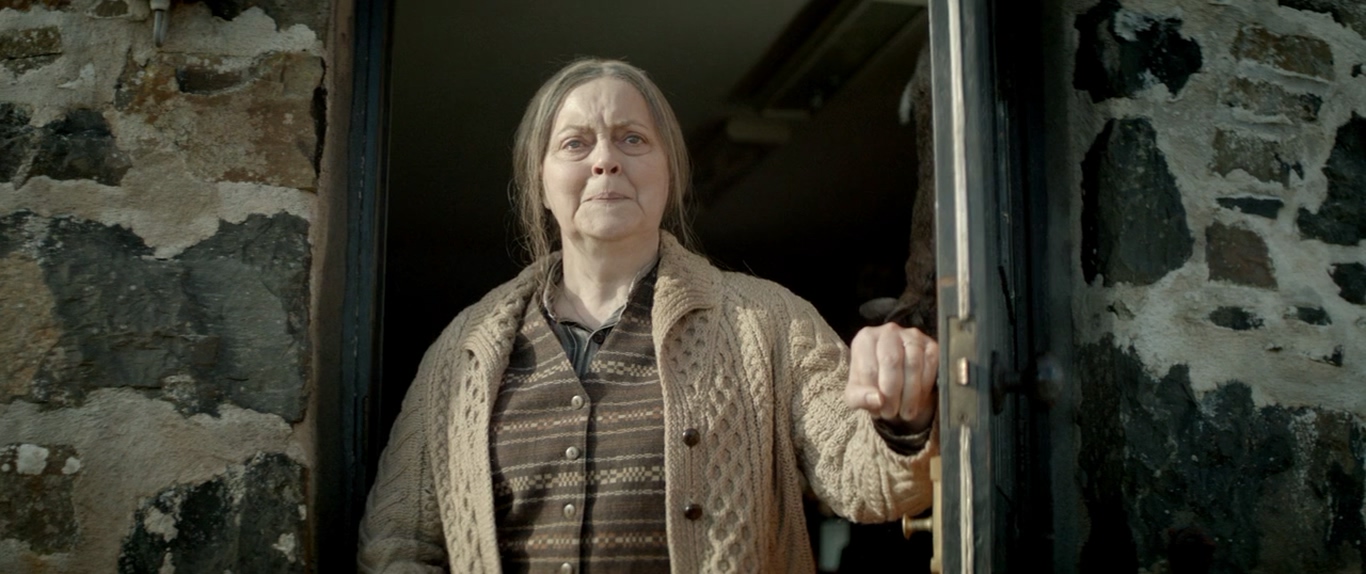
Glenys believes Rachel destroyed Eric’s life, and she carries a resentment against him for abandoning his parents for Rachel. After a quarrel, Eric leaves his mother and throws away the wedding ring in a nearby lake. Eric boards the ferry to the island, and the fisherwoman has no idea what is in store for him. The lighthouse bell rings even if the gates are locked, the sleepless nights continue, and Baxter goes gone. Eric begins to experience terrifying and grotesque hallucinations. According to the previous shepherd’s diary, the island appears to have more darkness than meets the eye.
Shepherd’s Finale: Who Is The Fisherwoman? Is She a Vampire?
Even with a magical aura surrounding her, the fisherwoman remains a mysterious character till the end. The fisherwoman introduces Eric to the lighthouse and farm on the route to the island, while also inquiring why he considered this employment. Eric responds that he needs some alone time, which the fisherwoman understands. Eric discovers the fisherwoman coming out of the lighthouse a few days after his stay at the farm. He phones her, but she doesn’t respond. Eric decides to leave the island after being visited by a phantom who takes the form of Glenys.
Eric tries the phone, which appears to be inoperable. When the fisherwoman phones Eric the next morning, the phone works well. Eric begs to go, revealing his role in his wife’s accident. The fisherwoman is aware of the mishap and is aware that Rachel was pregnant at the time. “Time to begin your sentencing, son,” she says after hearing Eric’s entire confession. The fisherwoman exudes authority, as she frequently refers to Eric as “son.”
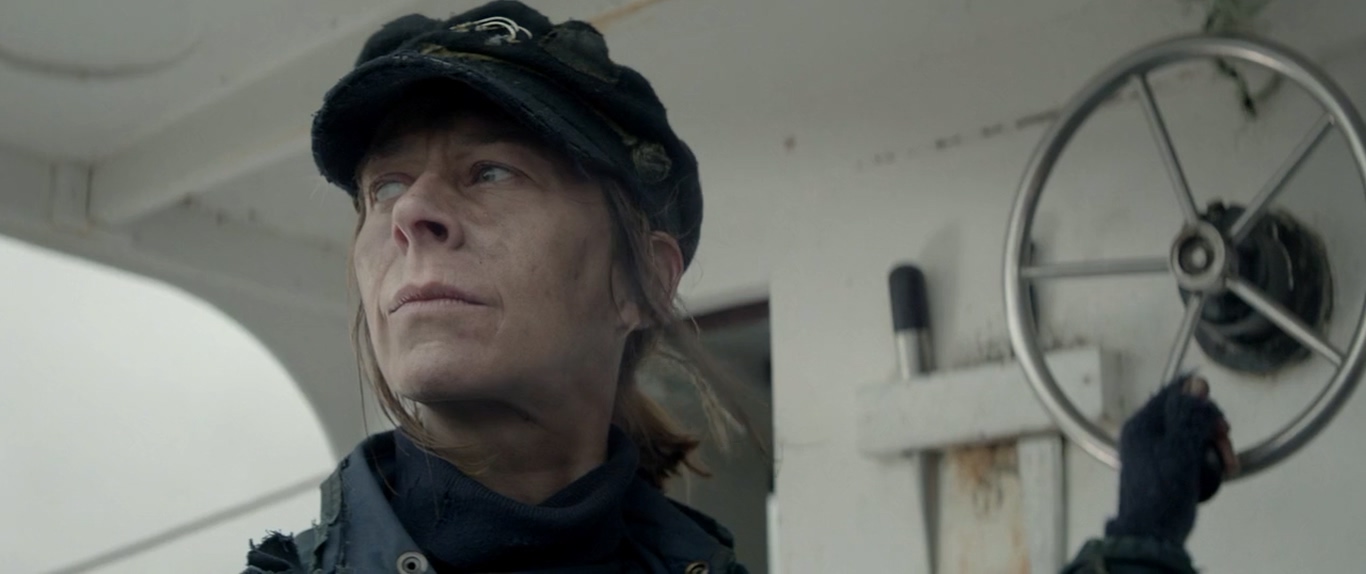
The fisherwoman also has a stuffed crow on her boat, which she plays with menacingly. Given the crow, it appears that she is the witch from the prior shepherd’s log. After all, witches have a long history of engaging in such dark magic involving dead creatures. But, as time passes, we learn that the fisherwoman is a balancing force rather than an evil one. In theory, her character is similar to “Justice” from medieval morality plays, especially since one of her eyes is blind. In popular imagination, Lady Justice is also shown blindfolded.
Another hypothesis holds that she is the personification of Wyrd (or “Fate”). You’d be surprised to learn that through the evolution of language, this “Wyrd” (or odd), which became portrayed as the “Weird Sisters” (classical Fates) in Shakespeare, took on the sense of “supernatural” or “uncanny.” The phone rings while Eric is in police custody, and it is the fisherwoman on the other end of the line. When Eric asks her to divulge her identity, she replies cryptically, “I’m only a servant of fate.” As a result, it is safe to argue that the fisherwoman is a personification of Wyrd from Anglo-Saxon mythology.
Is Eric allowed to leave the island? Is he going to prison?
Eric makes an attempt to leave the island for an extended period of time. After witnessing a series of terrifying visions, Eric chooses to take control of the situation near the end. Eric burns down the house after encountering Rachel’s ghost. He dives into the water and begins swimming. He does not have a chance to rest as Rachel’s ghost drags him down into the ocean. Following that, we find Eric in police custody once more. The investigator questions Eric, who spills the beans about his wife’s death. The cops were unaware that Eric was present at the scene of the collision.

Eric jumped out of the automobile on the cliff’s edge, and the car lost balance, killing Rachel. As a result, the police look for reasons to convict Eric. However, when he exits the police station, we notice the pagan sign of the island etched on the entrance of the police station. The lighthouse bell can be heard nearby. As a result, Eric appears to be still on the island. The film implies that whether or not the police imprison him, he is doomed to spend a long time in the chilly jail of the island. We agree that the prison is in Eric’s thoughts, and the surrounding settings are irrelevant.
Eric’s guilt takes the form of a jail after Rachel’s death. As a result, Eric perceives the island’s tranquil nature to be a prison. Although the fisherwoman encourages Eric to create a home on the island, Eric sees it as nothing more than a prison. With a strained connection with his parents, Eric seems to have invested heavily in Rachel. As a result, Rachel’s death appears to be the driving force behind the tragedy.
Eric encounters the ghosts of his mother and Rachel on the island. Eric also discovers the wedding band he had dumped elsewhere. As a result, it appears that Eric is less concerned with escaping the island and more concerned with escaping his memories. Furthermore, the memories get intensified amid the island’s isolation, tormenting Eric. According to the film, the island represents the area of the mind, which can be a hell of a heaven.
Genre: Horror, Movie Explainers, Mystery
Director: Russell Owen
Actors: Gaia Weiss, Gordon Brown, Greta Scacchi, Jamie Marie Leary, Kate Dickie, Richard Payne, Tom Hughes
Country: United Kingdom



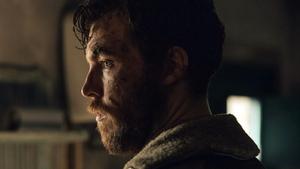



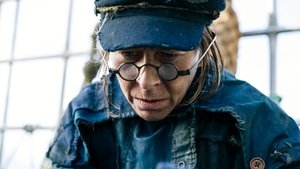
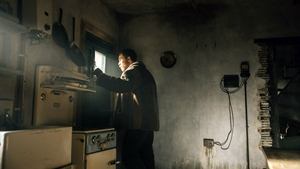






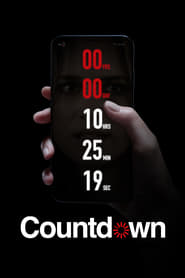


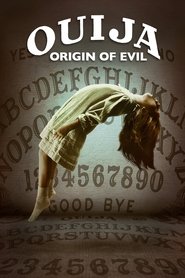





Leave a Reply
You must be logged in to post a comment.